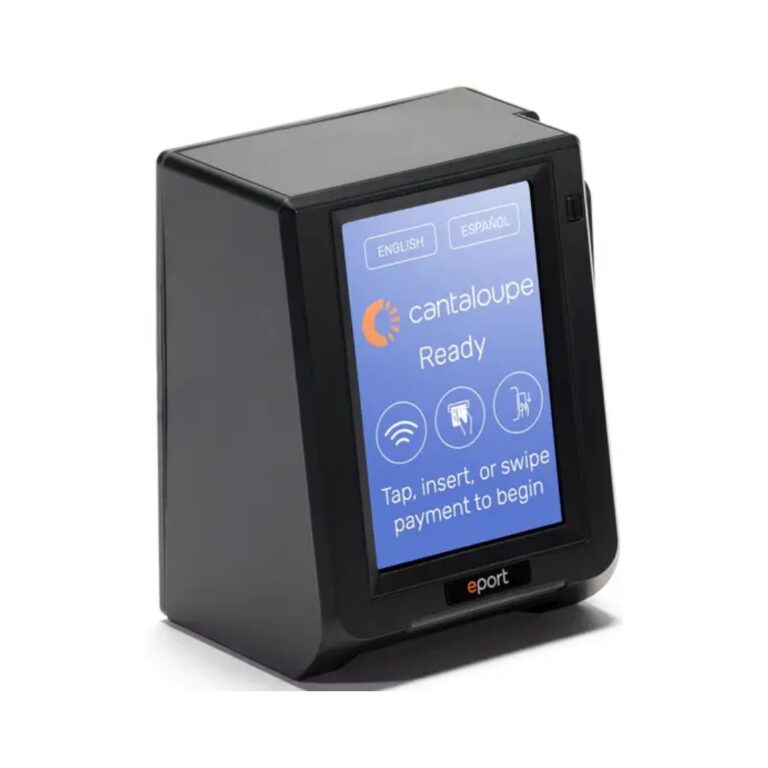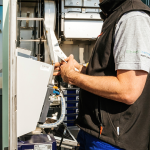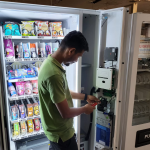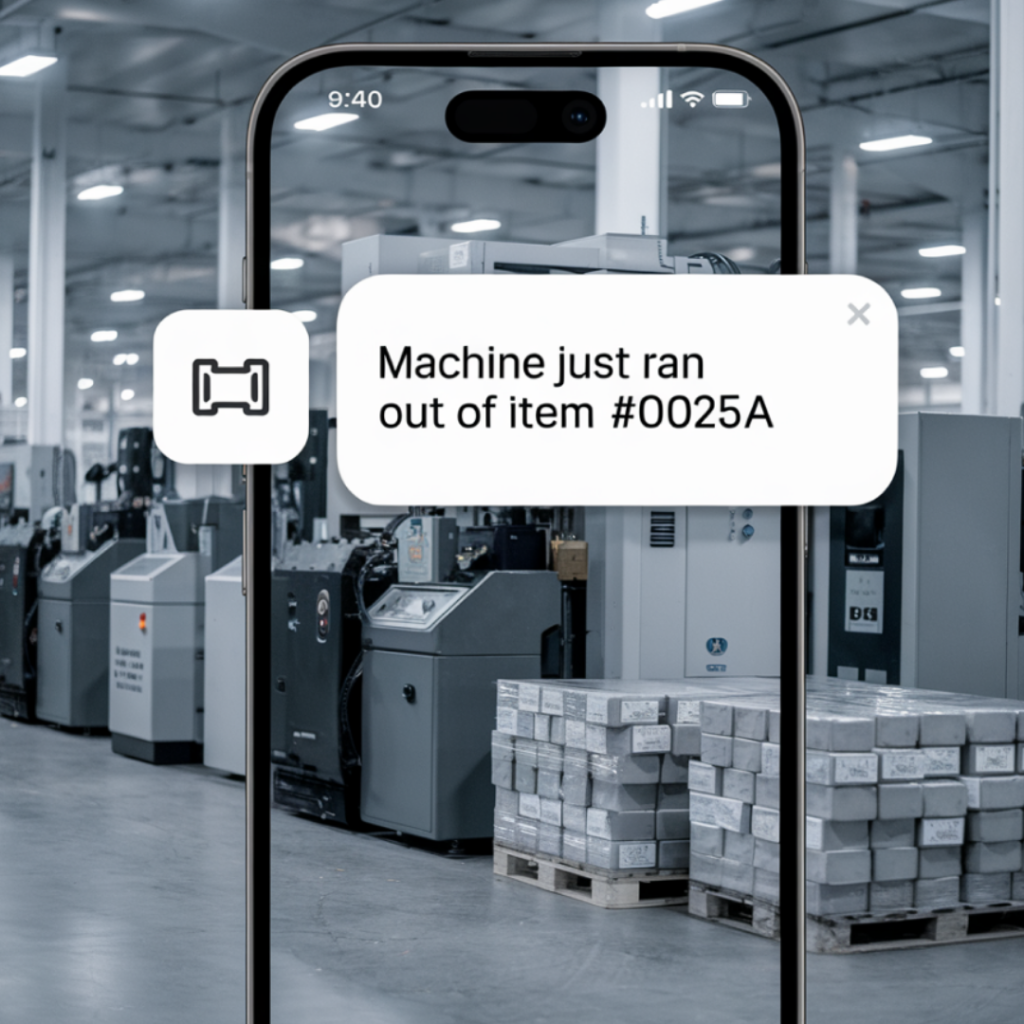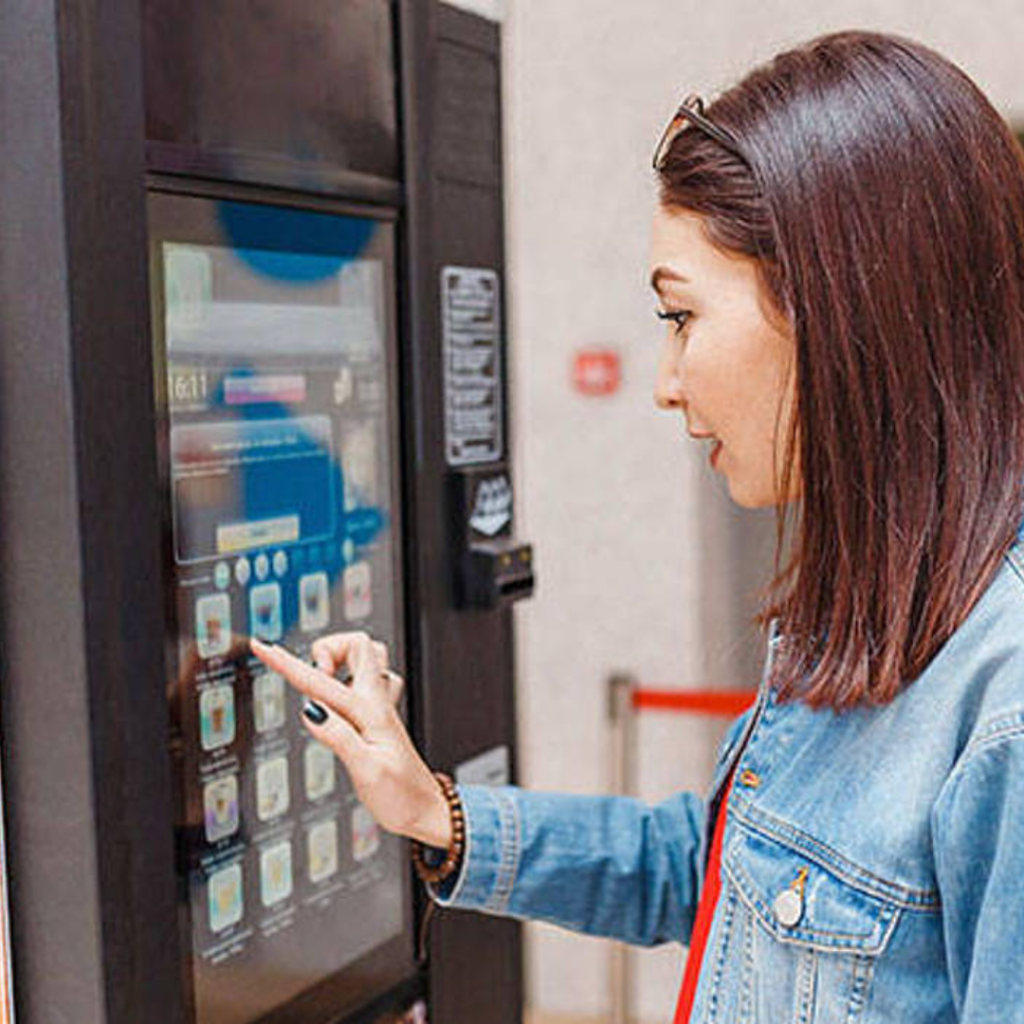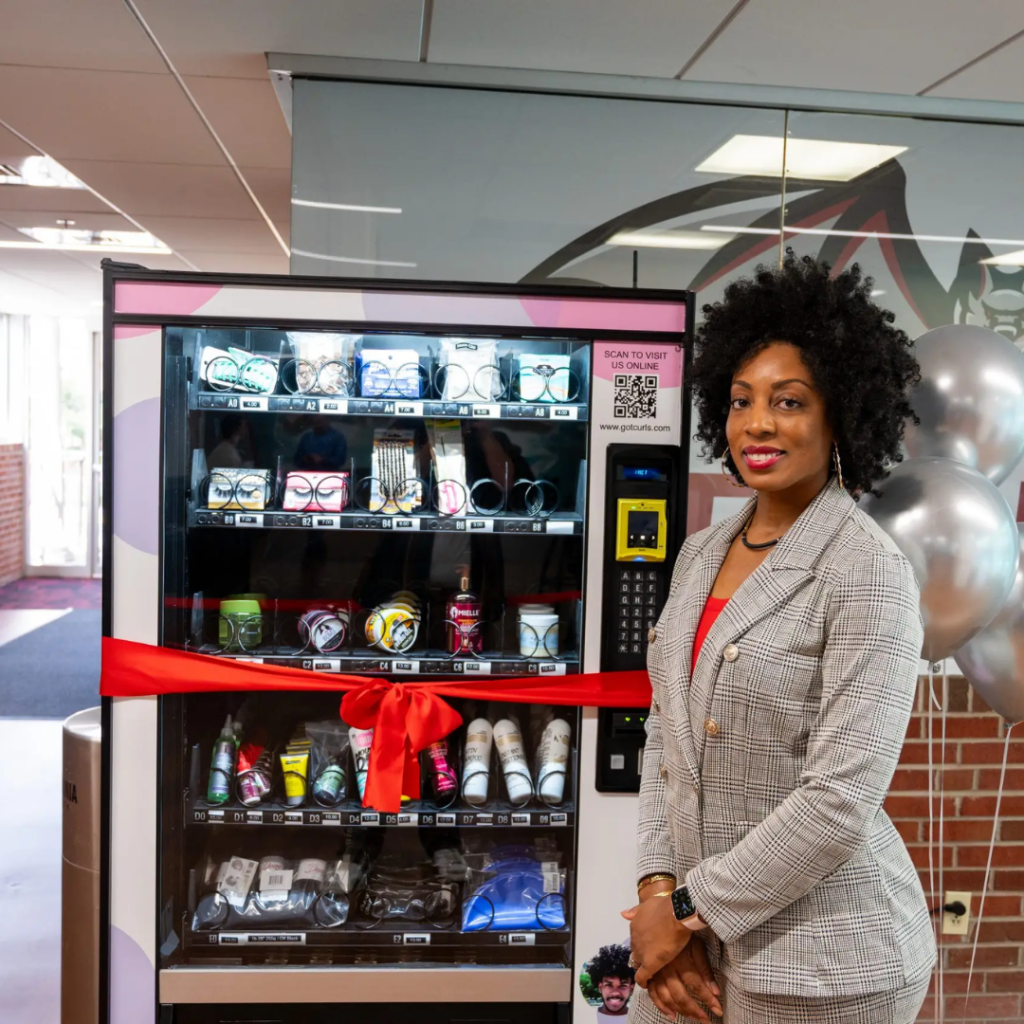Export ready American built machines in stock, shipping from Miami
Is It Legal To Own And Operate Alcohol, Beer, Or Wine Vending Machines In Alabama
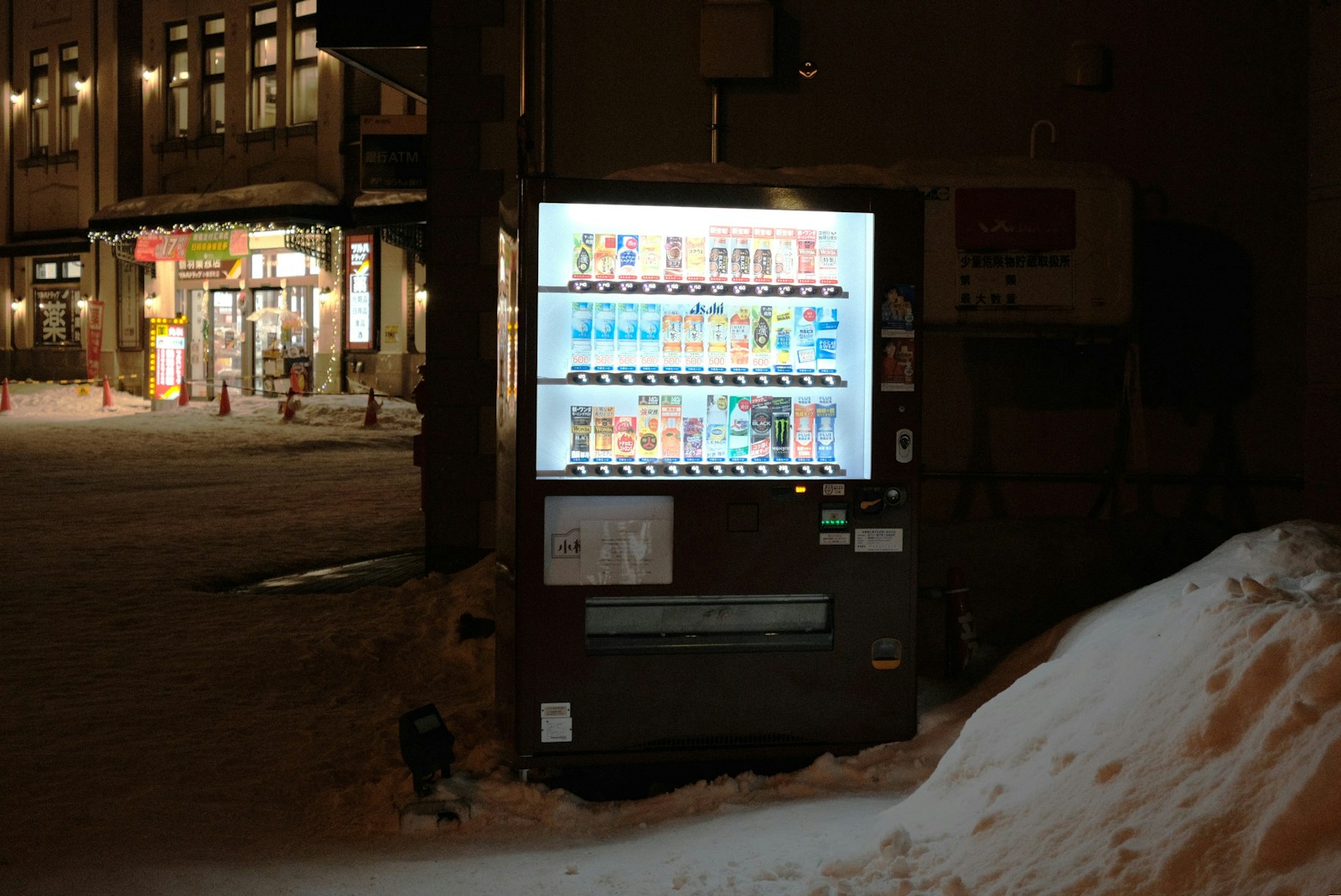
Overview: The Concept and Legal Question
An alcohol vending machine is a self-service unit that automatically dispenses sealed bottles or cans of beer, wine, or spirits after payment. These systems combine refrigeration, digital payment, and security controls to deliver regulated products without on-site staff. As vending technology advances, more operators ask whether is alcohol vending legal in Alabama, hoping to explore new opportunities within the state’s beverage market.
The same question extends to other categories: is beer vending machine legal in Alabama and is wine vending legal in Alabama. The interest comes from the growing automation trend in retail and hospitality, where businesses aim to reduce labor costs and offer around-the-clock convenience. Investors see alcohol vending machines as a potential innovation that combines novelty with profit potential, especially in high-traffic venues such as hotels, stadiums, and entertainment centers.
However, the legal landscape in Alabama is complex. Alcohol sales are tightly controlled, and the issue of compliance sits at the center of the discussion. Even with new technology such as age verification vending machines and vending machines with age verification system, the question remains whether these tools meet the standards of Alabama law. The topic is not just about automation, but about whether self-service alcohol sales can satisfy the licensing and enforcement framework the state requires.
This resource examines what current regulations say about alcohol vending, how licensing works, and whether these automated systems could ever operate legally in Alabama. Each section clarifies what’s permitted and where business owners should be cautious before investing in new vending machine designed for alcohol distribution.
How Alcohol Sales Are Regulated in Alabama
The Controlled System Under the ABC Board
To answer the question, is alcohol vending legal in Alabama, you must understand how the state regulates alcohol. Alabama uses a controlled system, meaning the Alabama Alcoholic Beverage Control (ABC) Board manages every sale of beer, wine, and spirits. The Board issues licenses, collects taxes, and enforces all compliance rules. No alcohol can be sold outside this framework.
Local Control: Wet and Dry Counties
Alabama law allows each county to decide whether alcohol sales are permitted. These are known as “wet” and “dry” counties. In wet counties, licensed bars, restaurants, and stores can sell alcohol under ABC rules. In dry counties, sales remain banned. This patchwork system adds complexity for anyone considering alcohol vending machines or other automated alcohol concepts.
License Categories and Human Oversight
The ABC Board divides licenses into several categories:
- On-premise licenses for restaurants, bars, and clubs that serve drinks for consumption on site.
- Off-premise licenses for stores selling sealed alcohol to-go.
- Manufacturer and wholesaler licenses for breweries, wineries, and distributors.
Each license type requires a responsible person to verify age, collect payment, and complete the transaction. A vending machine cannot perform those duties or legally “hold” a license. That fact is critical when discussing is beer vending machine legal in Alabama or is wine vending legal in Alabama.
Technology and Compliance Limits
Some operators point to new vending machines with age verification system that scan IDs or use facial recognition. Others reference cloud monitoring tools that track inventory and sales. These technologies improve accountability, but they do not replace the legal requirement for human control. The ABC Board still expects a licensed person to oversee each sale.
Key Takeaway for Investors
Anyone exploring financing for new vending machine should start by reviewing the state’s licensing framework. Alabama’s laws focus on controlled distribution and human oversight, two barriers that automated alcohol machines cannot yet overcome. Understanding those limits helps avoid expensive legal risks.
Defining the Alcohol Vending Machine
An alcohol vending machine is a self-service unit that dispenses sealed cans or bottles of beer, wine, or spirits after payment. It functions like any other automated retail machine but is programmed to manage restricted products that require age control. Operators often describe it as a fusion of digital vending and retail licensing. The idea raises an important question many people now search online: is alcohol vending legal in Alabama?
Why Entrepreneurs and Venues Are Interested
Automation in vending has expanded beyond snacks and drinks. Bars, hotels, and entertainment venues look for efficient ways to serve customers when staff are limited. A machine that can sell alcohol instantly seems like a natural next step. It could reduce staffing needs, extend service hours, and draw interest from curious customers. In locations with high foot traffic, even one alcohol vending machine can generate consistent revenue with low maintenance costs.
Investors view the idea as a chance to modernize hospitality operations. They see how beer vending machines and wine vending machines could fit into premium lounges, event halls, or resort settings where people expect convenience. The appeal grows as cashless systems and secure enclosures make management easier. With cloud-based monitoring, an operator can track sales, temperature, and stock levels from anywhere. These benefits drive the ongoing question: is beer vending machine legal in Alabama and is wine vending legal in Alabama?
The Core Legal Uncertainty
Despite the potential, Alabama’s alcohol laws were written for staffed environments, not machines. A vending system that sells alcohol without direct supervision challenges those rules. Even advanced age verification vending machines or vending machines with age verification system cannot guarantee compliance if the state does not formally recognize them. The key legal issue is whether a sale can occur without a licensed person confirming the buyer’s age and completing the transaction.
Innovation Versus Regulation
Across the country, some states have started testing automated alcohol sales under strict supervision. These pilot programs rely on biometric ID scanning and live remote monitoring. Alabama, however, has not yet adopted or approved such systems. For that reason, anyone exploring new vending machine variations must first understand how current laws treat alcohol distribution and licensing. Technology can help improve compliance, but it cannot replace state authorization.
Purpose of This Resource
This guide explains how Alabama’s alcohol control system works and how it affects vending entrepreneurs. It outlines the rules enforced by the Alabama Alcoholic Beverage Control Board (ABC), highlights the limits of self-service sales, and clarifies what compliance requires. It also touches on financing options for legal vending models that do not involve alcohol. Understanding the full picture helps operators make informed, lawful decisions before investing in automation.
Current Law on Alcohol Vending Machines
Alabama Law Does Not Authorize Alcohol Vending
When exploring is alcohol vending legal in Alabama, the answer under current law is simple: no. Alabama law does not authorize the sale of alcohol through any type of alcohol vending machine. The state’s Alcoholic Beverage Control (ABC) Board has not issued any statute, regulation, or license category that allows self-service or unattended alcohol sales. Without that legal foundation, these machines cannot operate within state limits.
No Statute or Regulation Permits Self-Service Alcohol Sales
Every method of alcohol distribution in Alabama requires a valid ABC license. Those licenses are granted to people or businesses, not machines. The ABC Board’s licensing framework lists approved activities for restaurants, bars, stores, wholesalers, and manufacturers. It does not include automated dispensing systems or remote sales completed without human supervision. Because of this omission, a beer vending machine or wine vending machine cannot be considered an approved sales method.
Unlicensed Vending Equals Illegal Sales
Operating an alcohol dispenser without a proper license counts as an unlicensed sale. Alabama treats such activity as a serious violation. It can result in fines, license suspension, or criminal penalties. Even if an operator uses a vending machine with age verification system or age verification vending machines that meet federal ID standards, the act of selling alcohol still requires a human representative. A machine cannot sign an application, renew a permit, or accept legal responsibility for each transaction.
Comparison With Other States
In a few states, limited pilot programs allow automated alcohol dispensing, usually under strict supervision inside licensed bars or restaurants. These systems include cloud monitoring, biometric ID checks, and real-time staff oversight. Alabama has not joined those programs. The absence of any rule supporting automation means that even controlled experiments involving new vending machine variations are currently off-limits.
Implications for Operators and Investors
Entrepreneurs sometimes assume they can add alcohol options to existing vending routes or franchises. In Alabama, that approach creates legal exposure. The state’s ABC Board considers each sale a licensed transaction that must involve a qualified person. Until the Board updates its rules or the legislature amends current statutes, alcohol vending machines remain outside the law. Anyone considering financing for automated alcohol systems should halt plans until the regulatory environment changes.
Bottom Line
Under Alabama’s existing legal framework, a vending machine cannot sell, deliver, or transfer alcohol, regardless of technology or location. The question is beer vending machine legal in Alabama or is wine vending legal in Alabama has one consistent answer: not yet. Operators who proceed without authorization risk fines, criminal liability, and loss of any current business licenses.
Why It’s Restricted: Key Legal Barriers
Age Verification Challenges
The most significant barrier to alcohol vending machines in Alabama is age verification. State law strictly prohibits the sale of alcohol to anyone under 21. In a staffed environment, a licensed employee checks identification before completing a sale. A machine, however, cannot meet that legal standard. Even with advanced technology such as vending machines with age verification system or age verification vending machines, the law still requires human judgment. Machines may scan IDs, but they cannot detect fake documents or confirm that a user matches the photo on an ID.
Licensing and Accountability
All alcohol sales in Alabama must occur under a valid license issued by the Alabama Alcoholic Beverage Control (ABC) Board. Only people or business entities can hold those licenses. A vending machine cannot apply for, hold, or renew one. Because each sale must happen under the supervision of a licensed individual, an unattended machine cannot legally complete a transaction. This rule answers the ongoing question, is alcohol vending legal in Alabama — not under current licensing laws.
Enforcement and Legal Liability
Unauthorized sales carry serious consequences. Selling alcohol without a license can result in large fines, criminal charges, and the permanent loss of existing licenses. The ABC Board also has authority to confiscate machines involved in illegal sales. For a vending operator, that risk extends beyond one location. It can affect future business applications and financial partnerships, including financing for new vending machine variations.
Local Restrictions: Wet and Dry Counties
Alabama’s local laws create another layer of control. Many counties remain “dry,” meaning they do not permit alcohol sales of any kind. In those areas, installing a beer vending machine or wine vending machine would be unlawful even if the state eventually approved vending-based alcohol sales. This combination of state and local restrictions leaves little room for unlicensed or self-service systems.
Technology Alone Cannot Solve Compliance
Modern vending systems rely on cloud connections, cameras, and ID scanning to improve oversight. Yet, these features only enhance monitoring; they do not replace the legal duties of a licensed seller. Alabama’s law centers on personal accountability. A machine, no matter how smart, cannot accept responsibility or ensure compliance in the same way a trained employee can. Until legislation changes, automation will remain a compliance risk.
Summary
When analyzing is beer vending machine legal in Alabama or is wine vending legal in Alabama, the answer remains tied to these barriers: age verification limits, licensing rules, liability concerns, and local bans. Together, they create a legal environment that prevents alcohol vending machines from operating legally in the state.
Possible Legal Alternatives
Operate Within Licensed Venues
Although the answer to is alcohol vending legal in Alabama remains no, there are limited ways to explore automation without breaking the law. One legal path is to place a dispensing system inside a licensed establishment, such as a bar, restaurant, or hotel lounge. In this setup, a licensed employee oversees each transaction, verifies the customer’s age, and ensures proper service. The machine functions only as a tool for controlled dispensing rather than an unsupervised seller.
Some modern bars already use partial automation, where beer vending machines or self-pour taps operate under staff supervision. Each system still follows ABC rules requiring a licensed server to monitor usage and ensure no underage access. These models align better with existing law while allowing operators to test new technologies.
Non-Alcoholic Beverage Machines
Another option for vending entrepreneurs is to focus on non-alcoholic drinks. Machines that sell mocktails, craft sodas, or non-alcoholic beers do not require an alcohol license. This approach removes legal risk while letting you experiment with design, placement, and payment systems. You can still apply advanced tools such as cloud management and cashless payment to refine your business model. Later, if state laws change, your company will already have the infrastructure to adapt quickly.
Partnerships With Licensed Retailers
Entrepreneurs interested in automation can also explore partnerships with licensed alcohol retailers. A vending unit might serve as a controlled pickup point inside a licensed premises, where staff verify IDs and release sealed containers. This hybrid concept requires approval from the Alabama Alcoholic Beverage Control Board, but it could become a bridge between traditional retail and automation. For operators seeking financing, such partnerships demonstrate responsibility and compliance, improving eligibility for loans or grants.
Monitor Future Legislative Developments
Several states, including Colorado and Ohio, are studying controlled self-service alcohol vending systems that rely on strict ID verification and live monitoring. Alabama has not yet followed this path, but change could come through legislative reform. Entrepreneurs who monitor ABC announcements or state legislative updates will be ready to act if pilot programs emerge. Keeping your business plan flexible ensures you can adopt compliant new vending machine variations when permitted.
Focus on Compliance and Innovation
Innovation should always operate within legal boundaries. Using vending machines with age verification system or age verification vending machines to sell age-restricted non-alcoholic products can still build your reputation for compliance. This experience positions your business for a smoother transition if Alabama eventually legalizes limited automated alcohol sales. Responsible planning now can protect your investment later.
Summary
While alcohol vending machines remain illegal in Alabama, opportunities still exist for vending operators. Working with licensed venues, selling non-alcoholic options, and tracking future law changes allow you to stay innovative without violating regulations. Adapting technology responsibly keeps your business compliant and ready for future expansion if state policy evolves.
Bottom Line for Entrepreneurs
Alcohol Vending Machines Remain Illegal in Alabama
After reviewing state laws, licensing requirements, and enforcement practices, the conclusion is clear: is alcohol vending legal in Alabama? No. As of now, Alabama law does not allow the sale of alcohol through any alcohol vending machine. The Alabama Alcoholic Beverage Control (ABC) Board requires that every alcohol sale occur under a valid license and with human oversight. A vending system cannot satisfy either condition.
Key Takeaways for Operators
Entrepreneurs interested in beer vending machines or wine vending machines should treat this concept as a long-term idea, not an immediate investment. The current legal environment makes these machines impossible to operate lawfully. Before committing to equipment purchases or financing agreements, confirm your plans directly with the Alabama ABC Board and review local county rules. Many counties remain “dry,” meaning no alcohol sales are permitted at all.
- Do not install or operate unlicensed or unsupervised alcohol vending units.
- Consult with the ABC Board before purchasing any machine intended for alcohol use.
- Consider non-alcoholic or age-restricted products that comply with current vending laws.
- Monitor future updates from state lawmakers regarding automation and compliance.
Legal and Financial Risks
Attempting to sell alcohol through an unapproved vending machine can lead to serious penalties. These include fines, criminal charges, and the loss of any existing business licenses. Machines used in unlicensed sales can be seized, and operators may become ineligible for future permits. Ignoring these risks can quickly damage both reputation and revenue.
Future Possibilities and Responsible Innovation
Some states are experimenting with supervised or ID-verified systems that could one day influence Alabama’s laws. When and if that happens, businesses already experienced in cloud-connected vending or age verification vending machines will have a head start. Until then, operators should focus on compliant new vending machines that deliver innovation without violating state law.
Final Word
In summary, is beer vending machine legal in Alabama or is wine vending legal in Alabama? The answer remains no under current regulations. Alabama’s alcohol laws prioritize licensing control, human oversight, and local restrictions. Entrepreneurs who respect these boundaries protect their investments and strengthen their credibility for future opportunities. For now, responsible innovation within legal vending categories is the most practical path forward.


